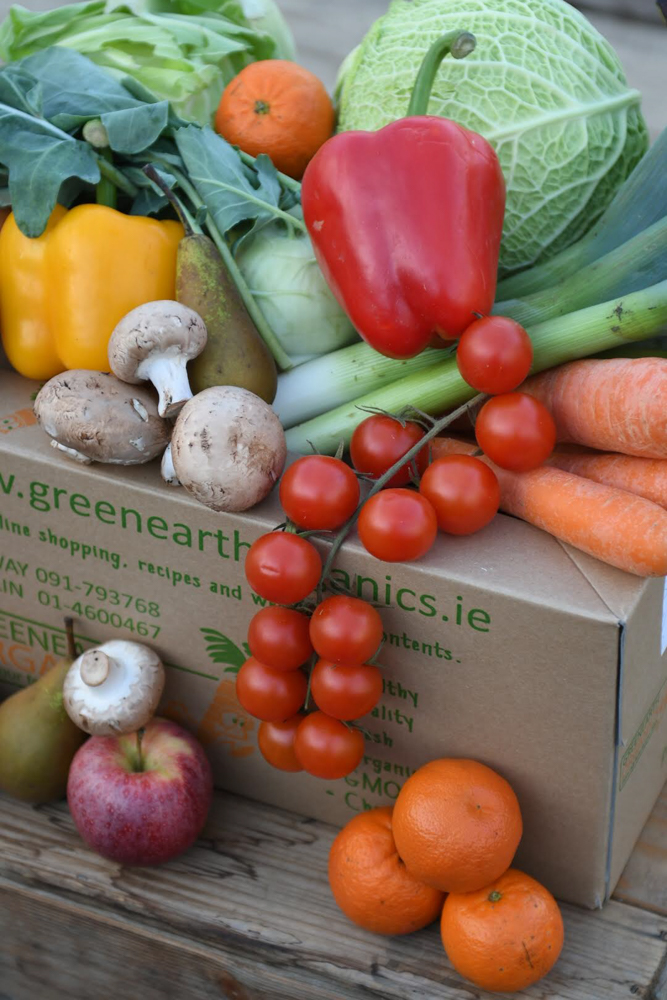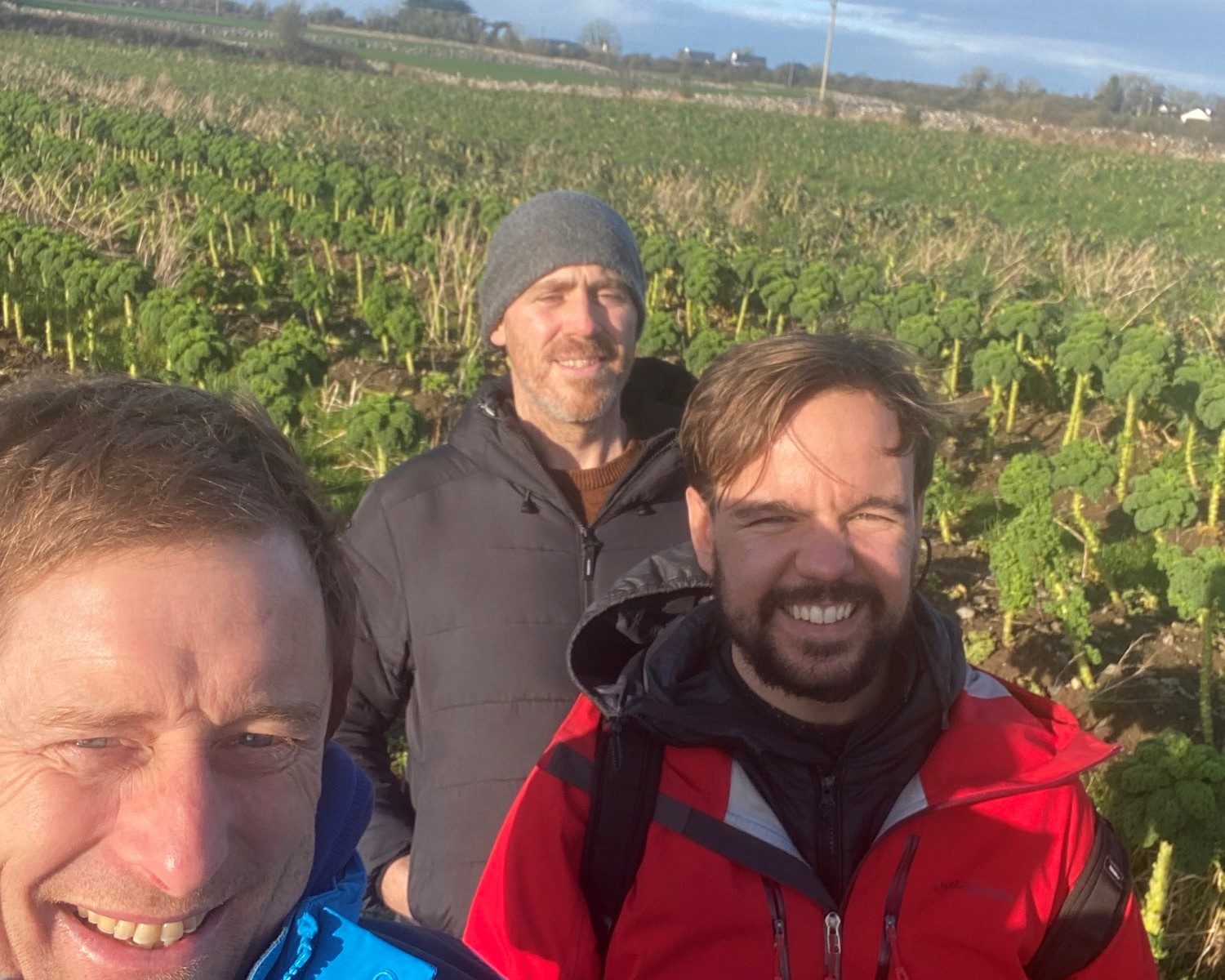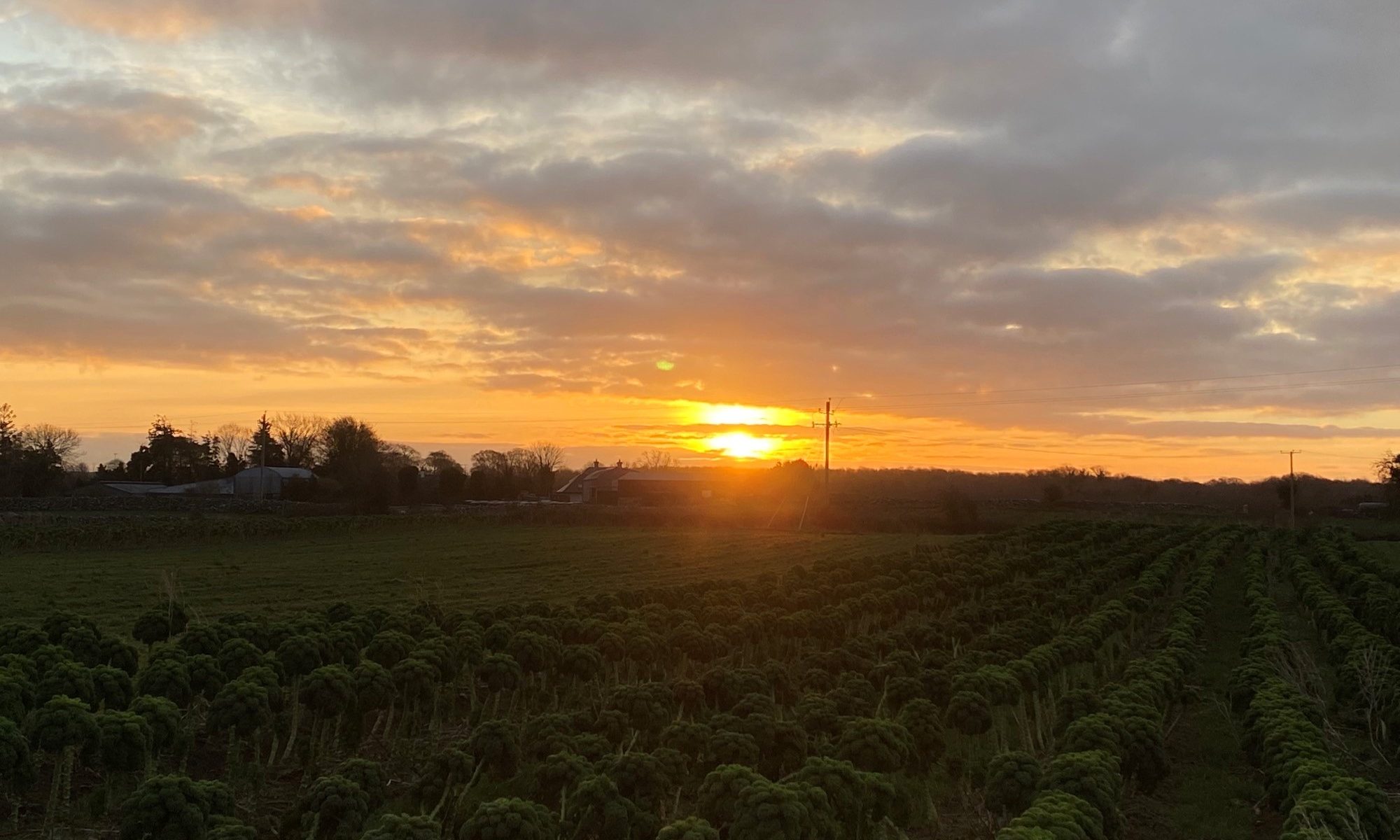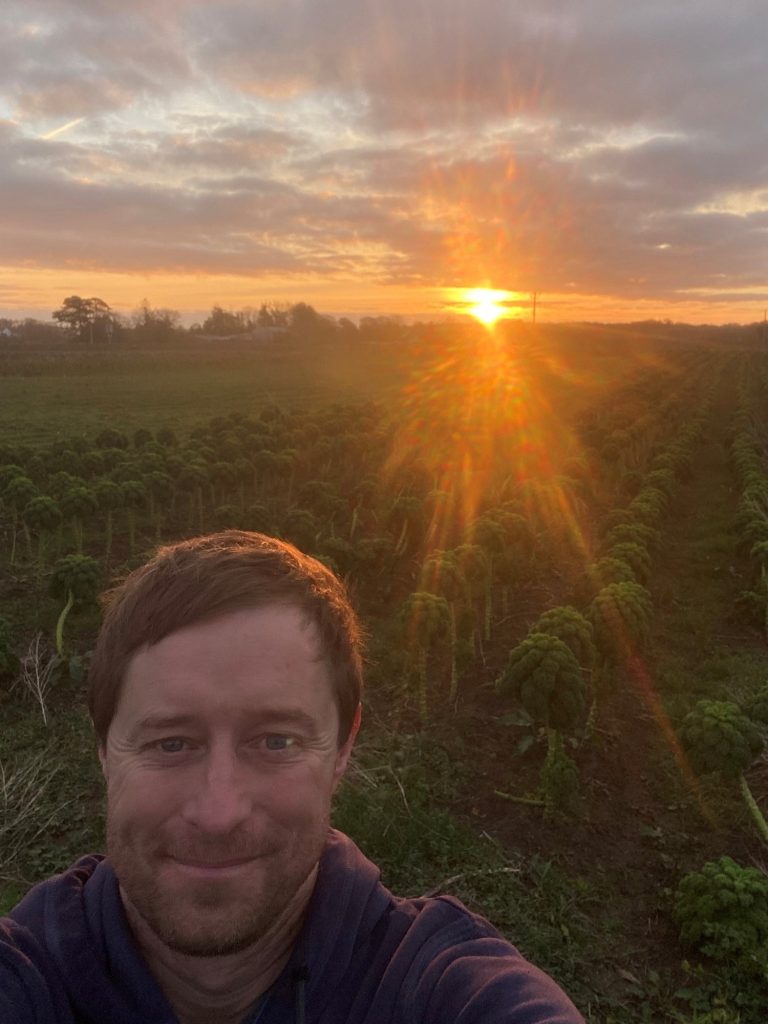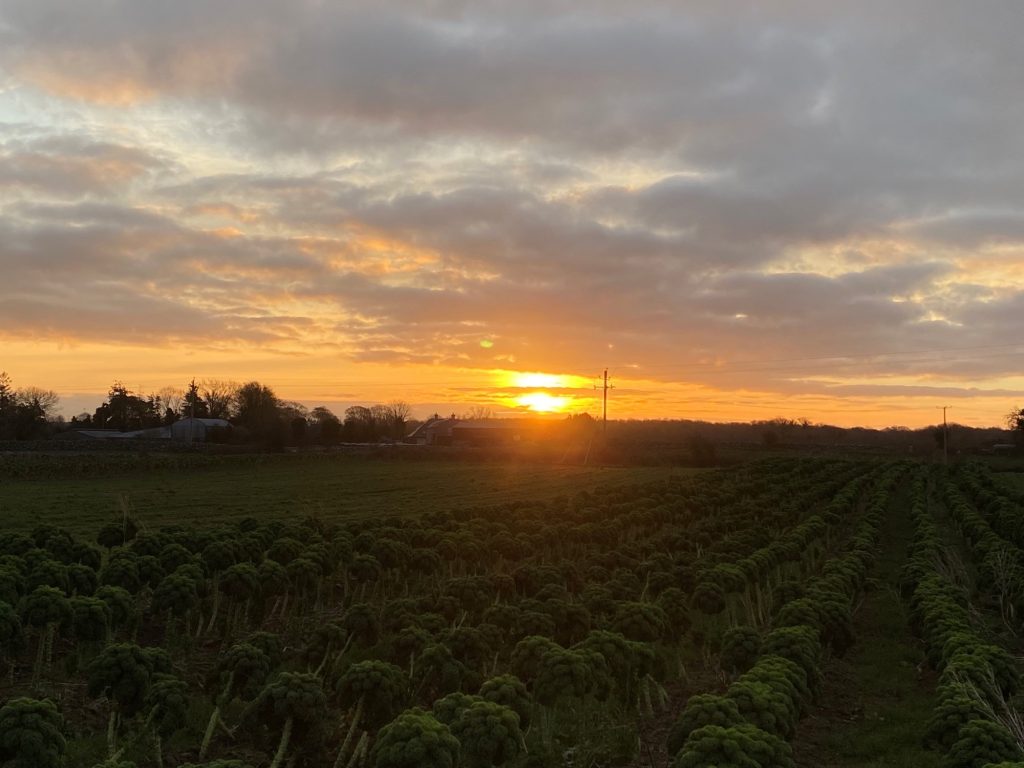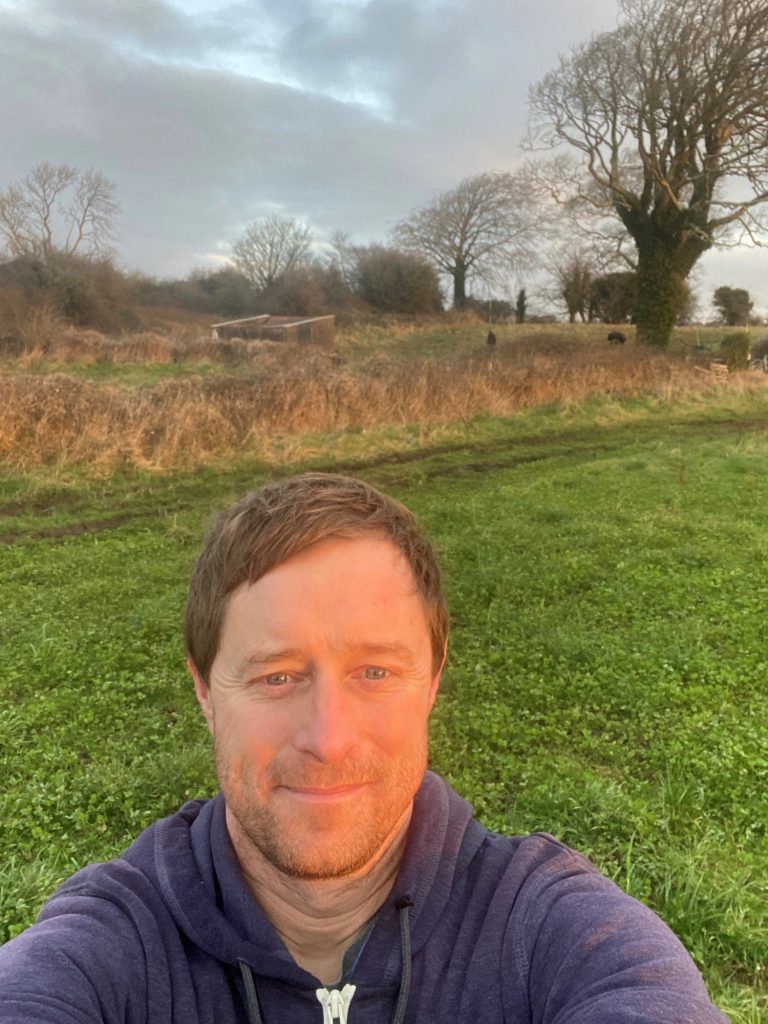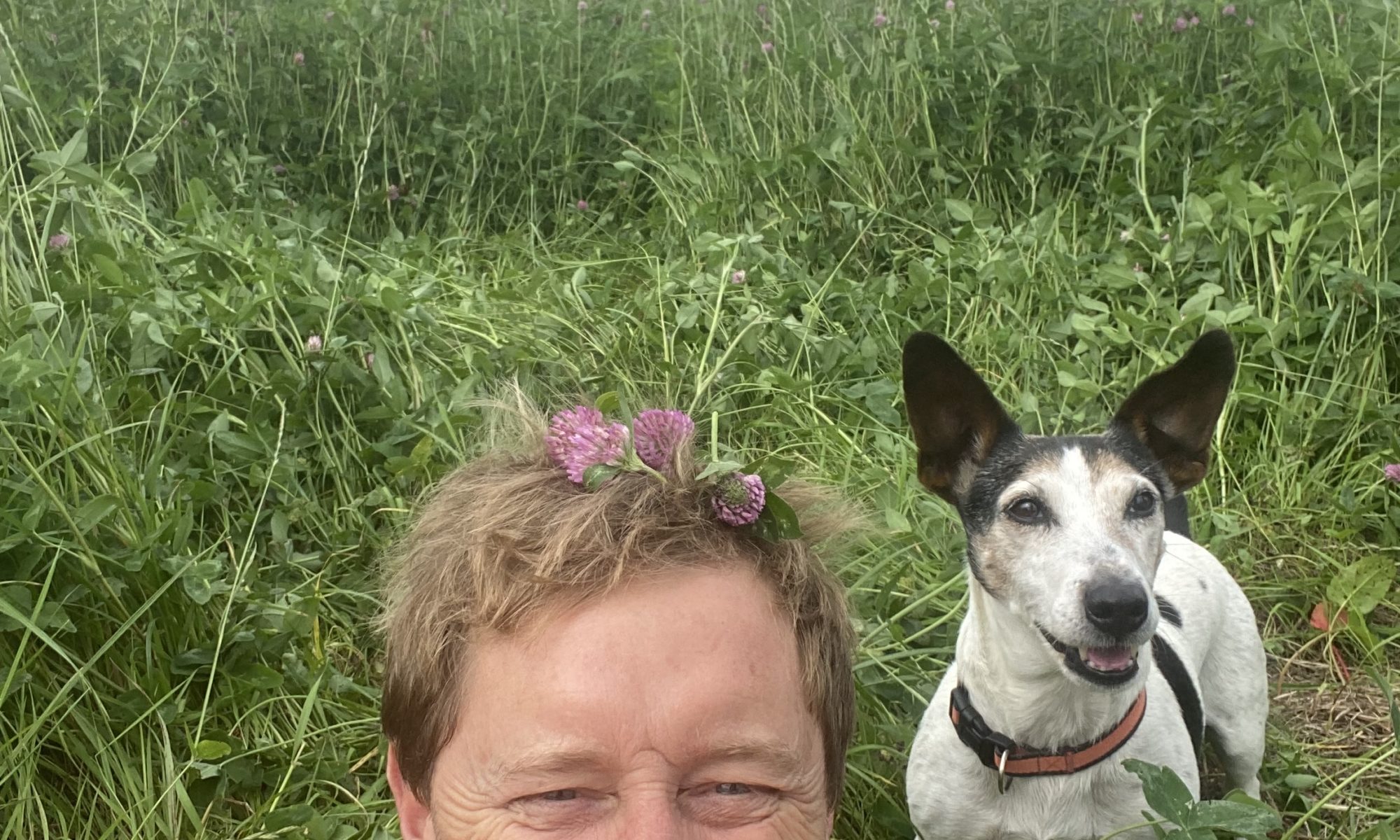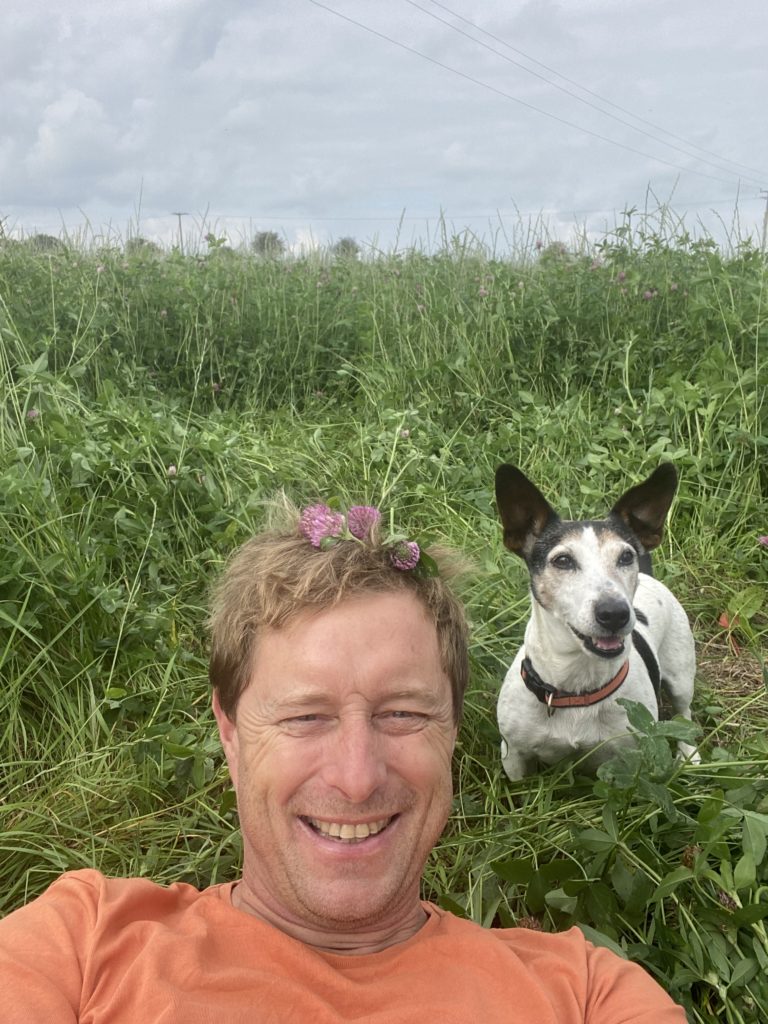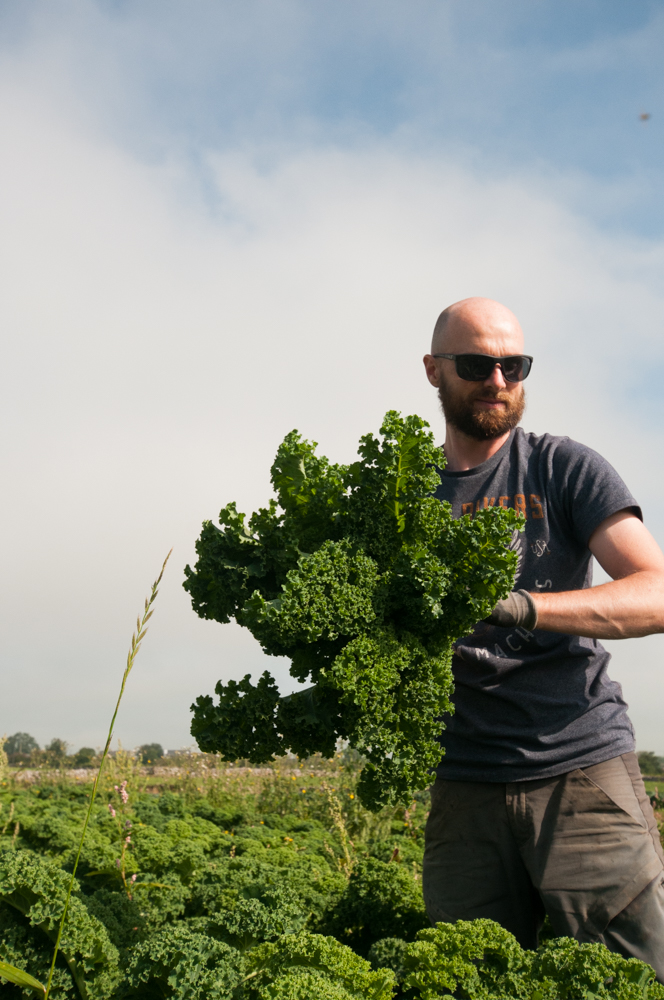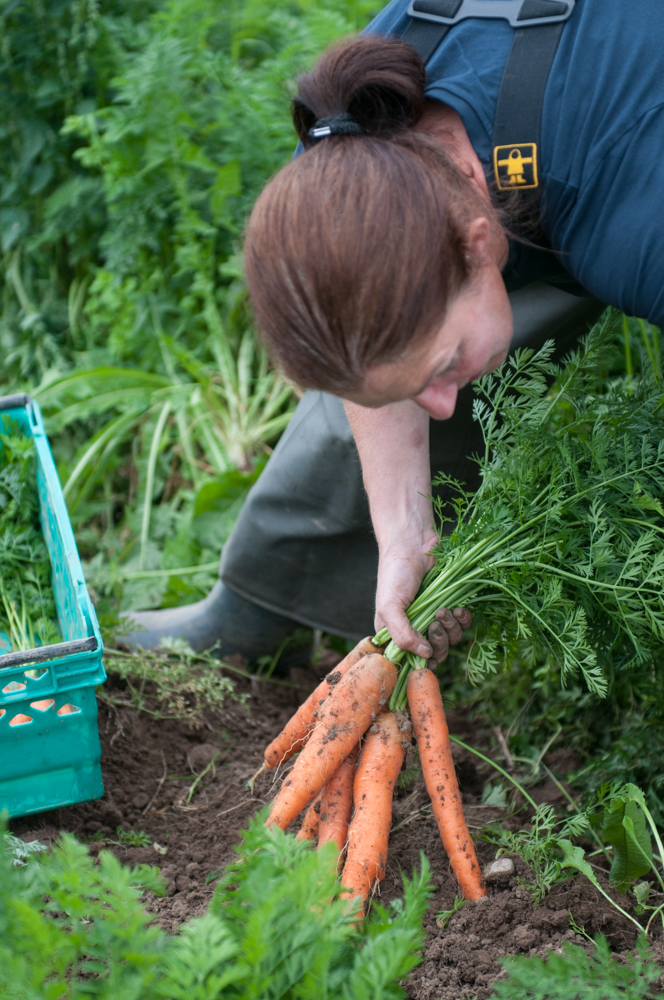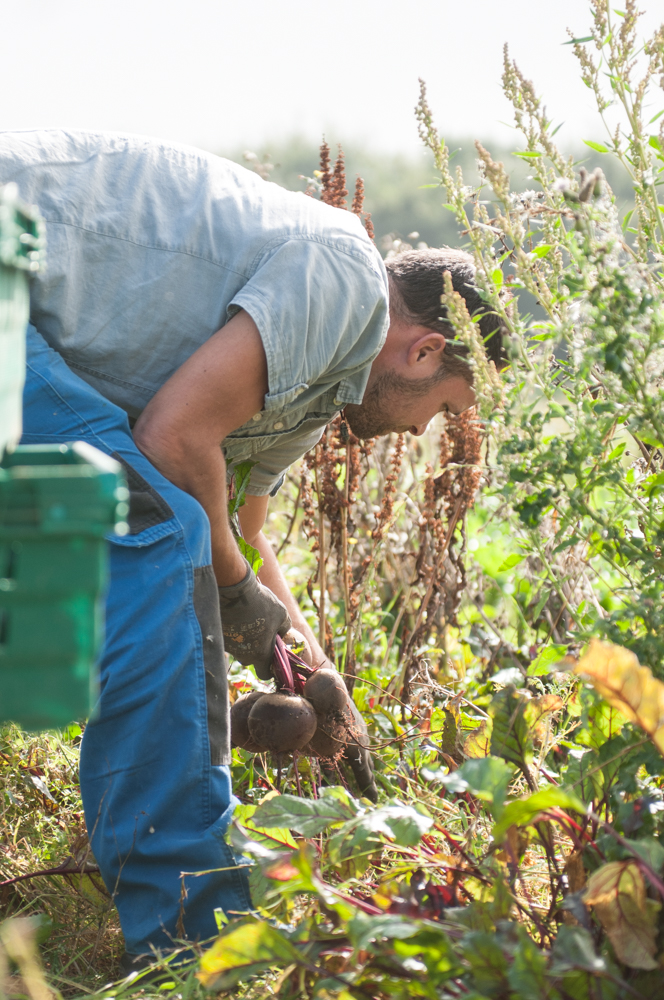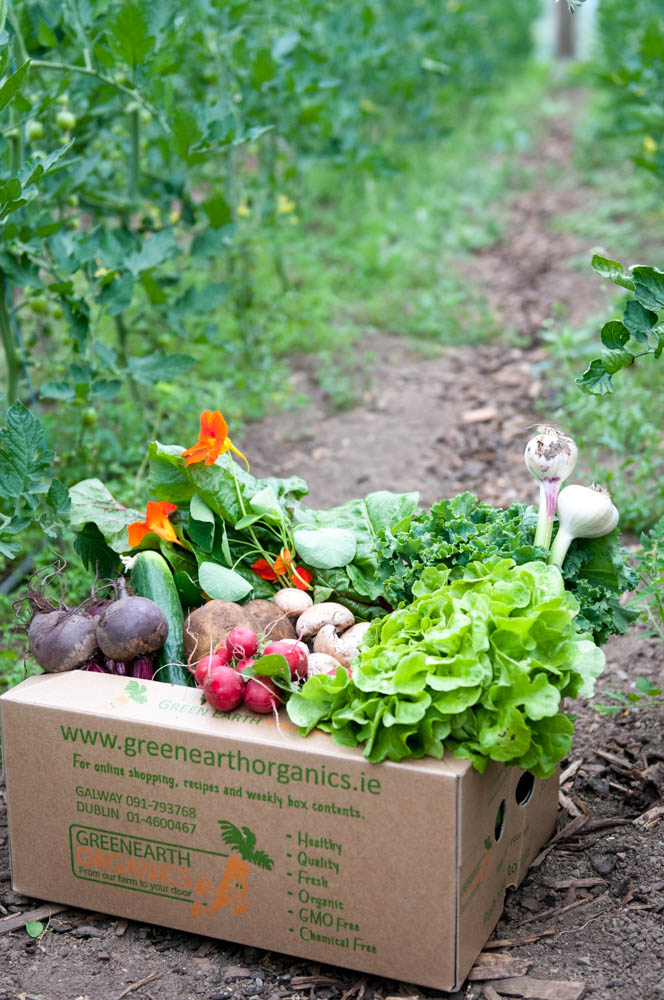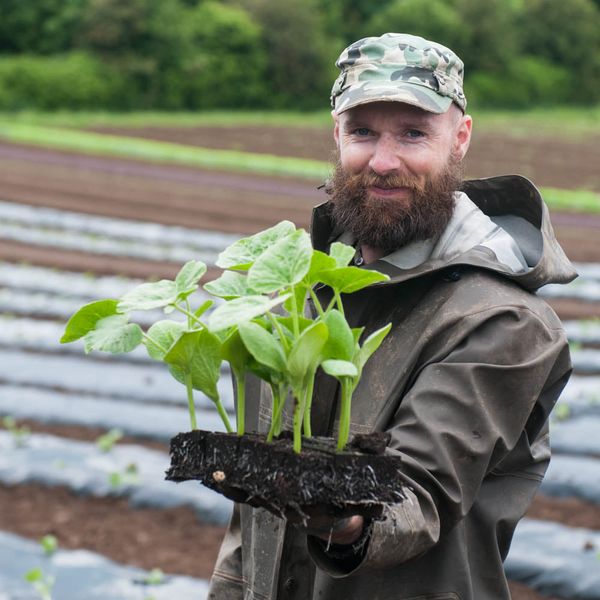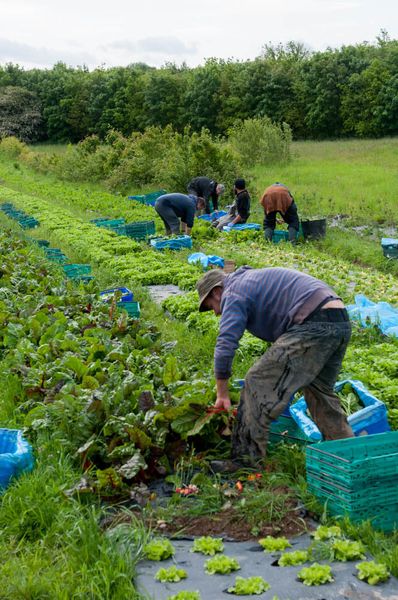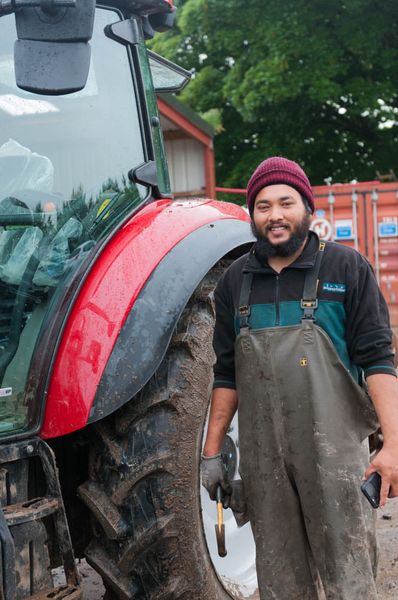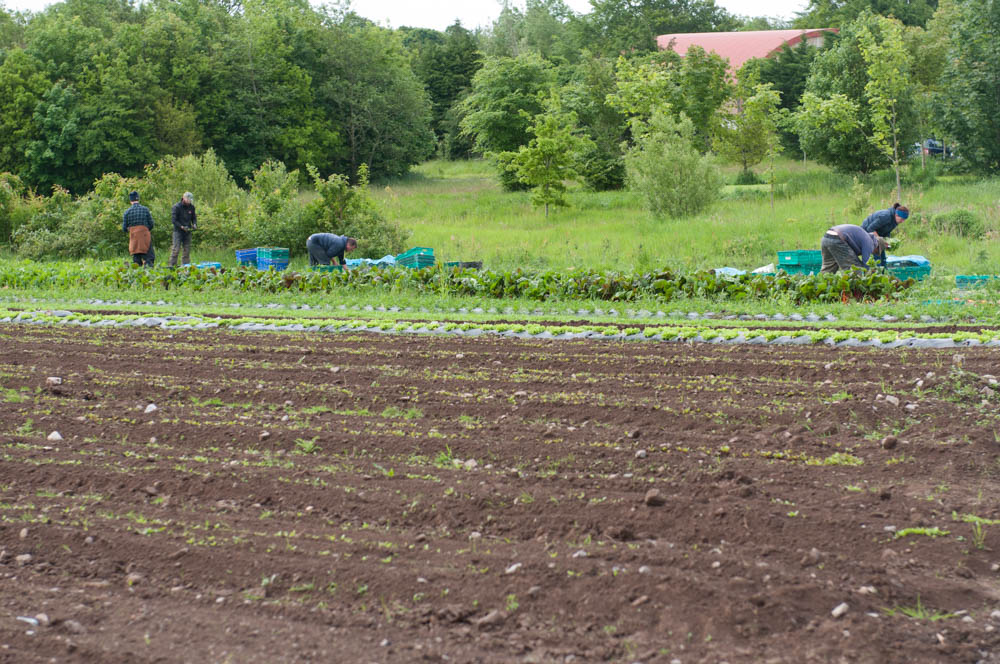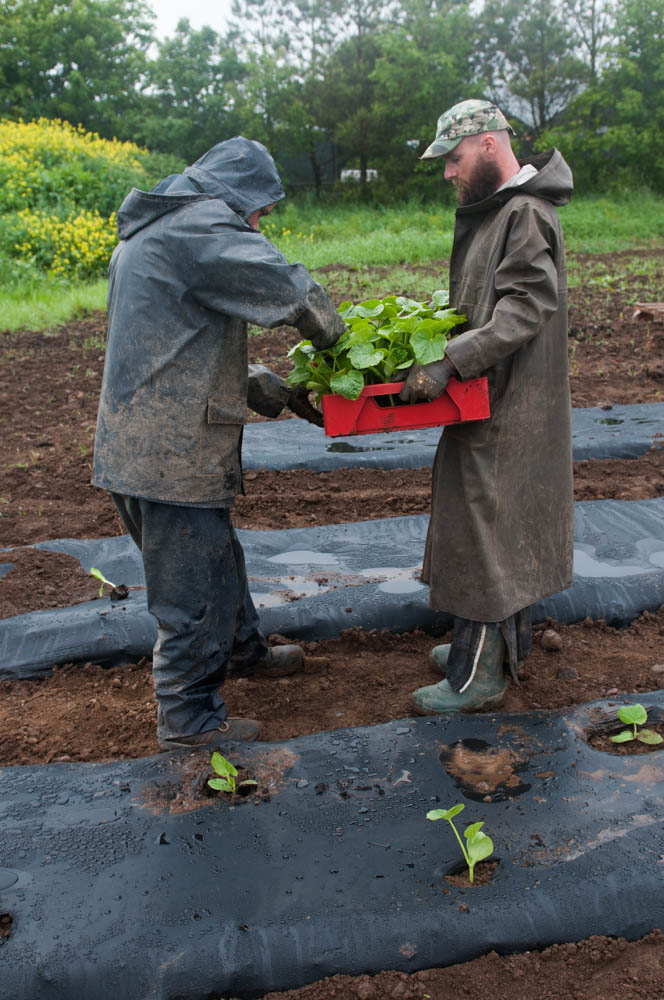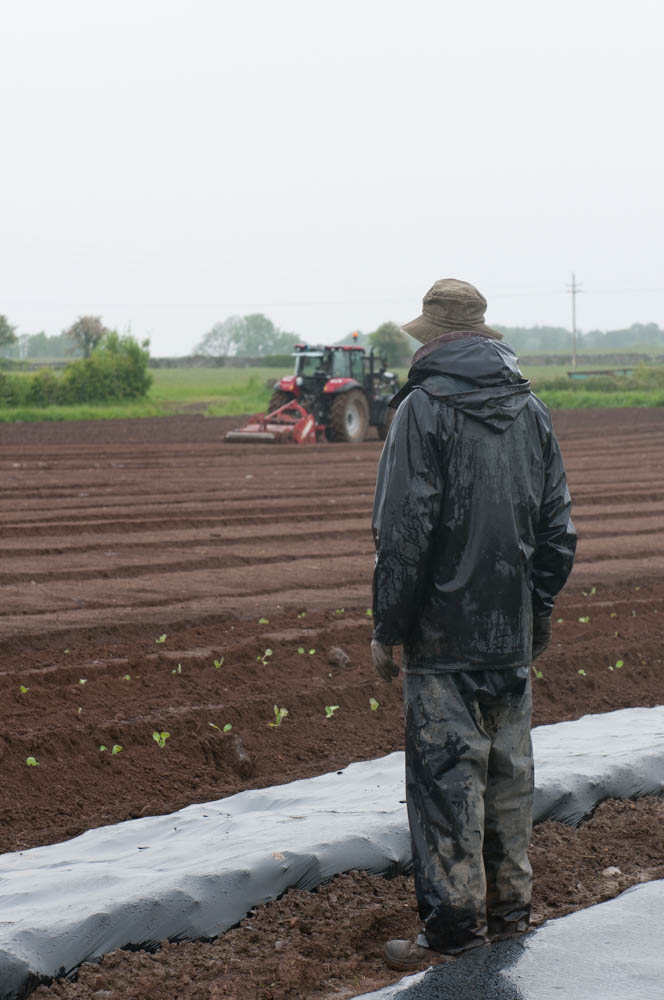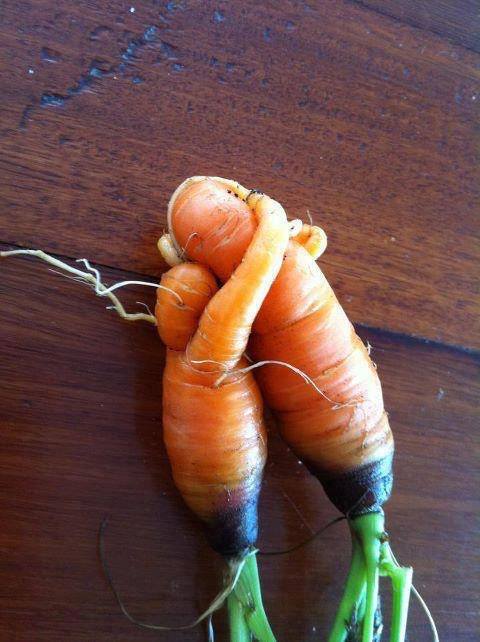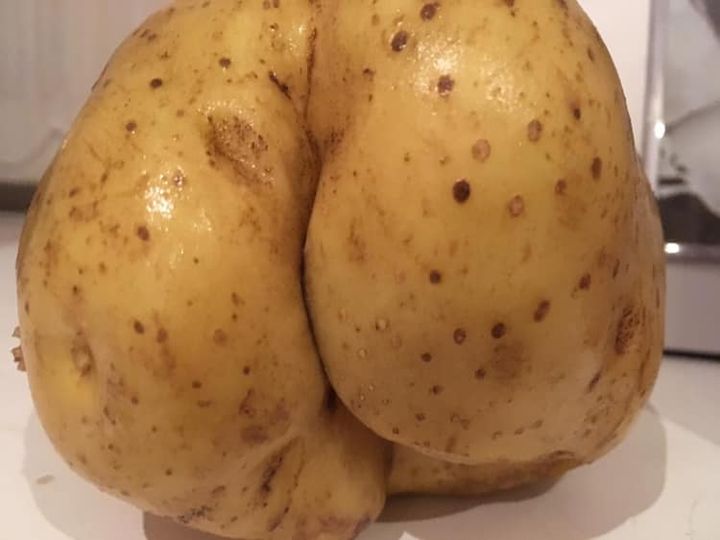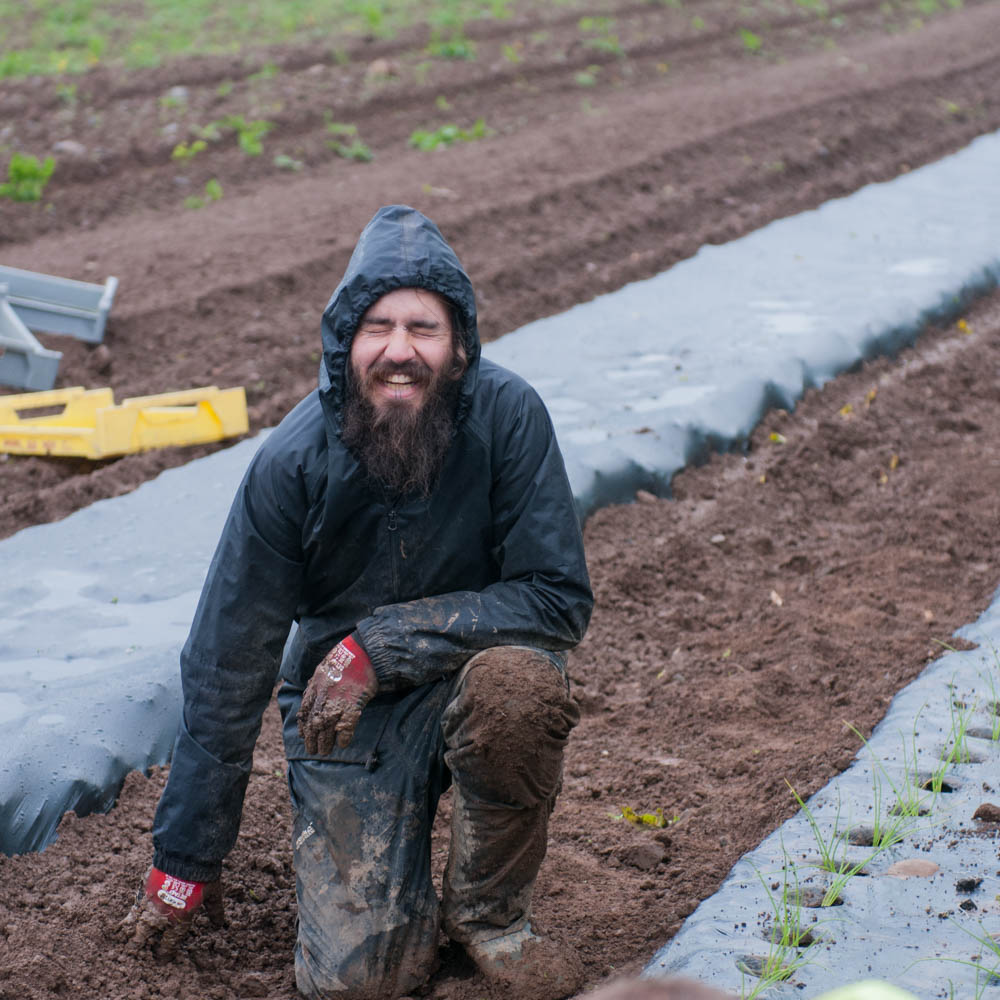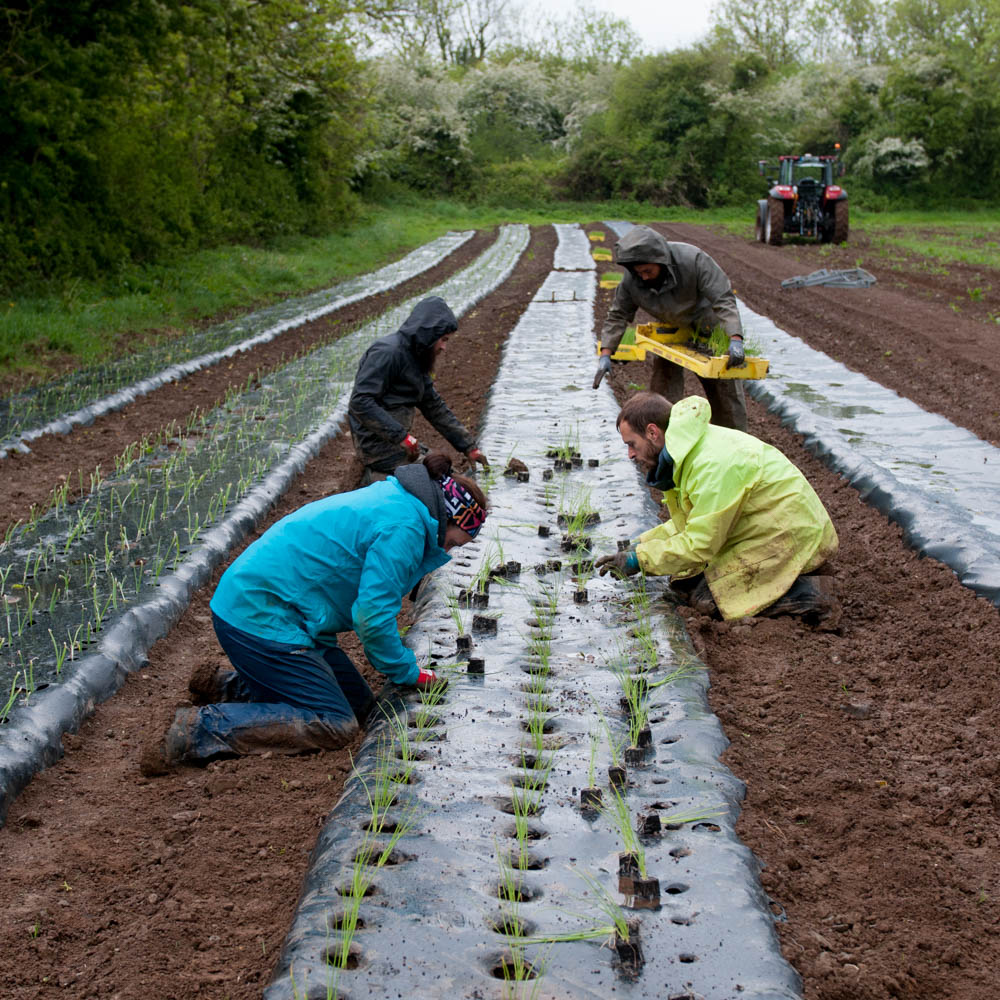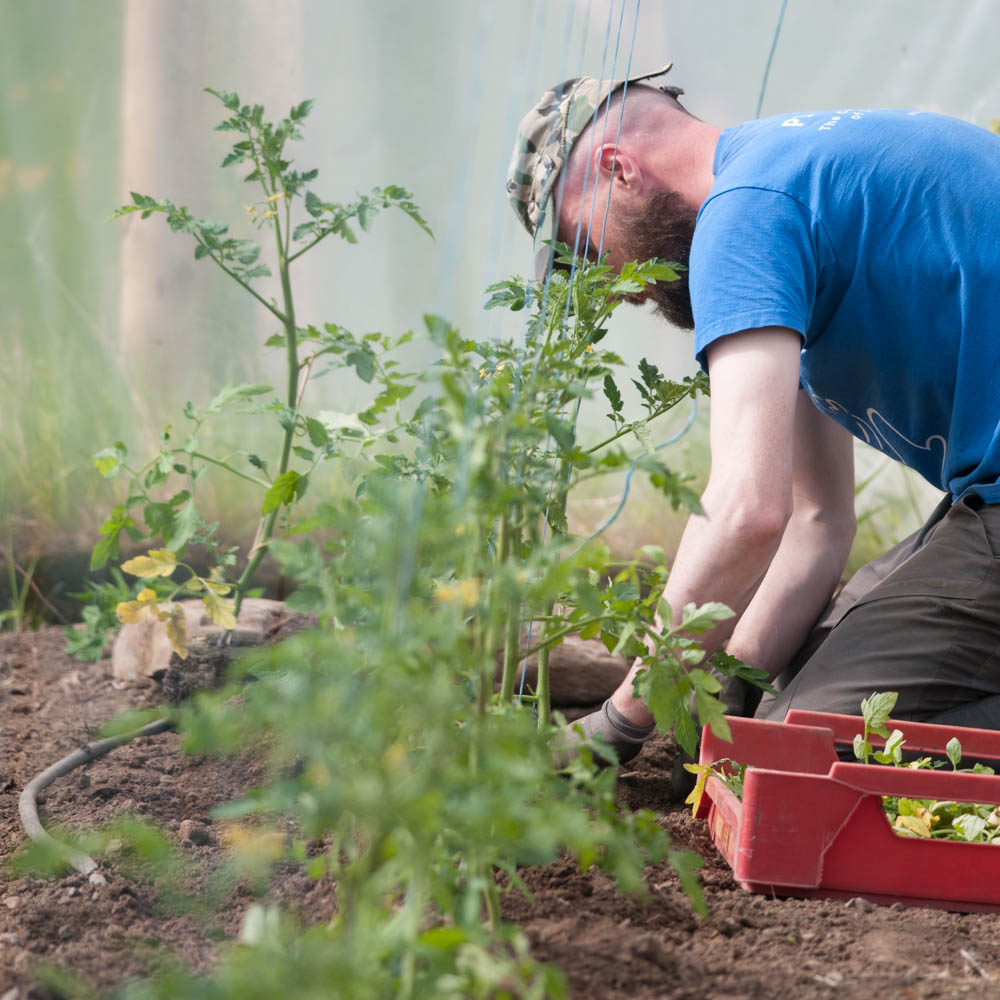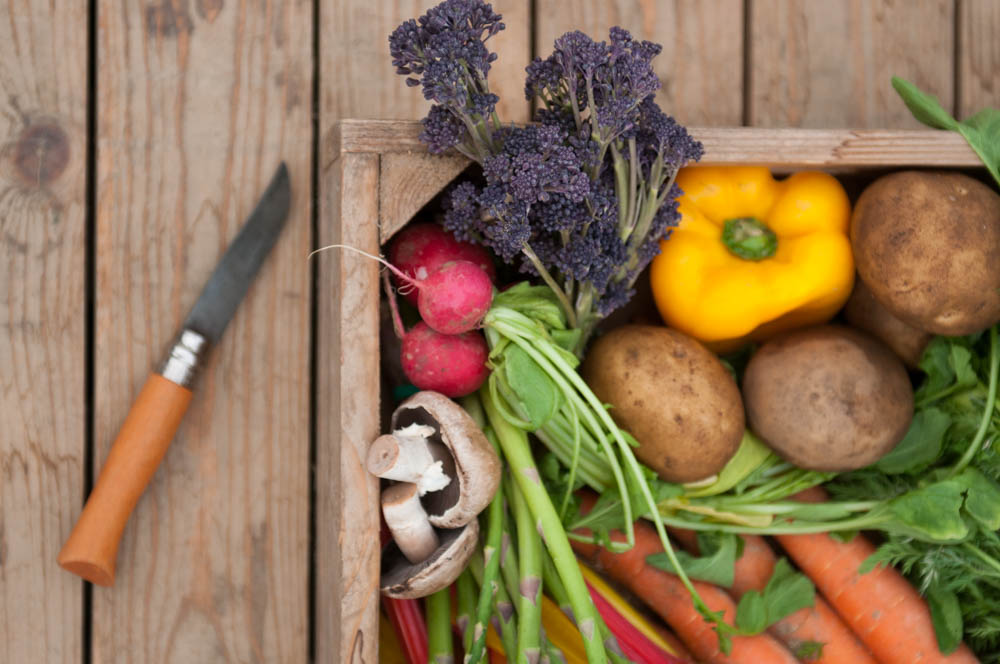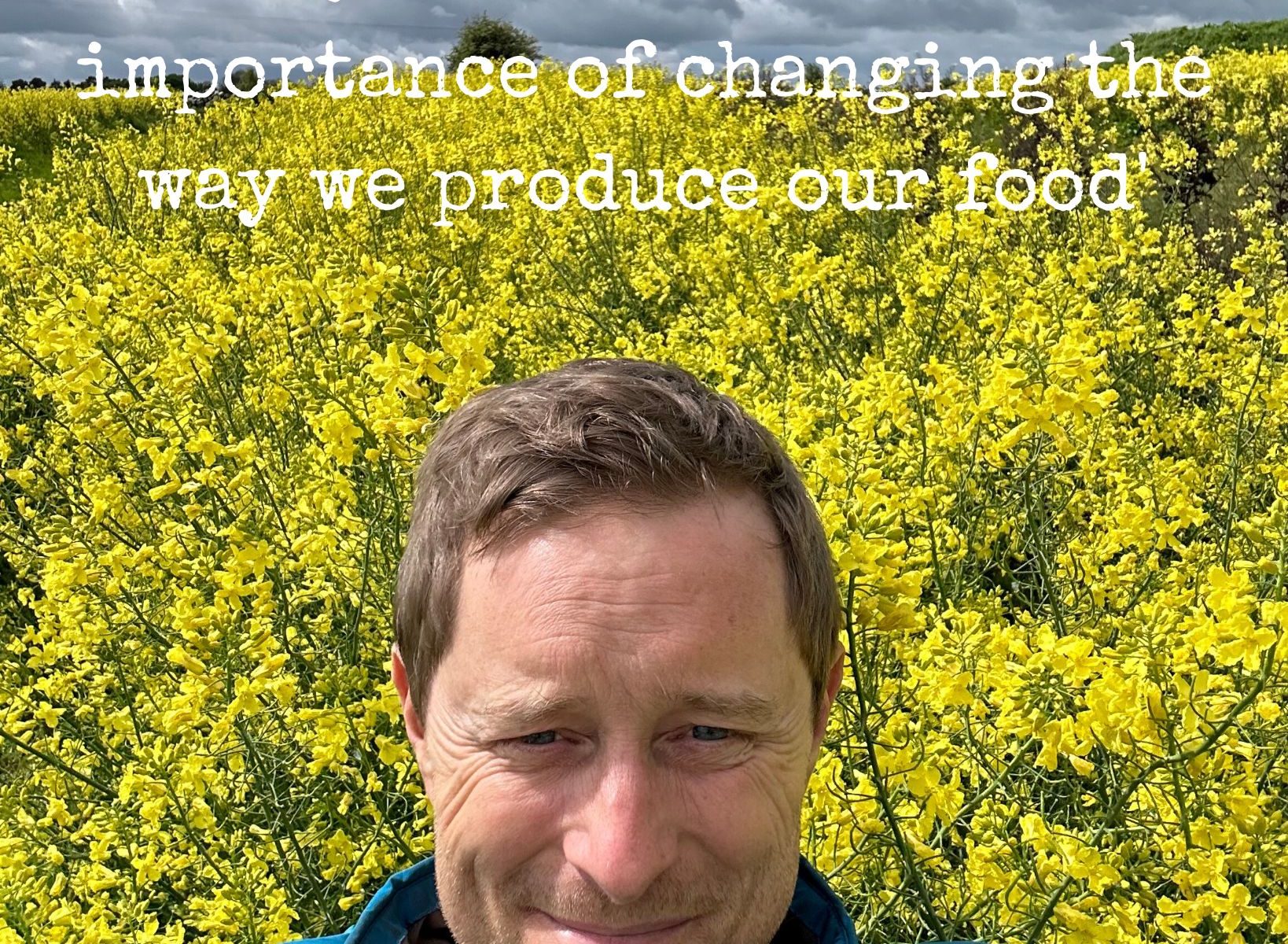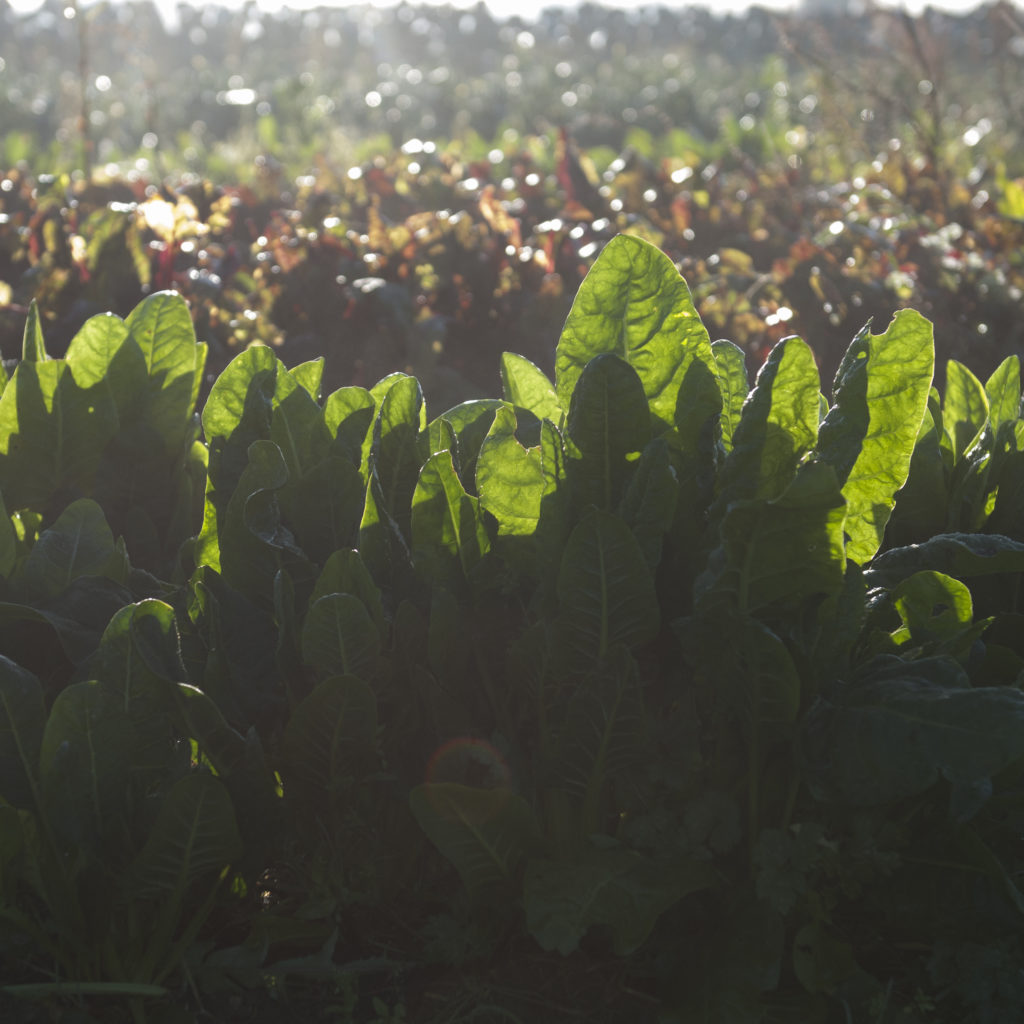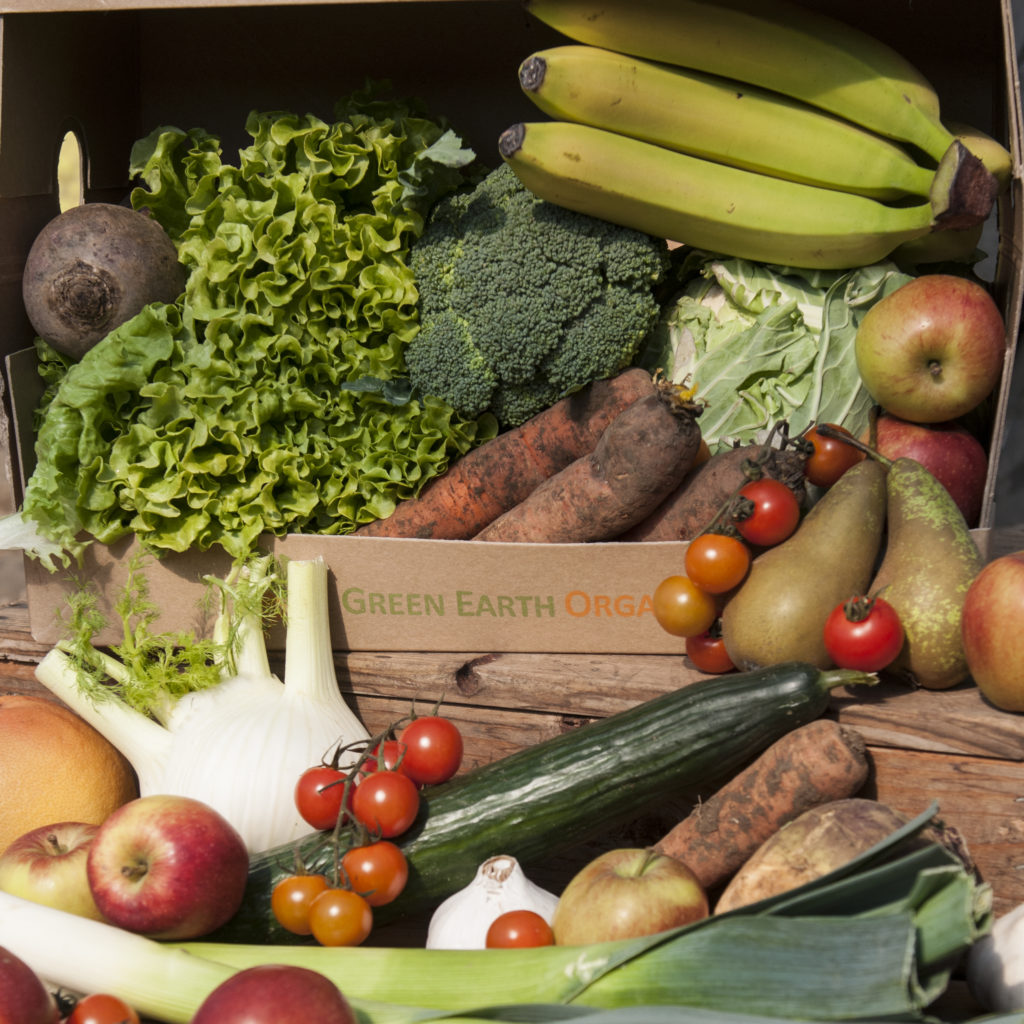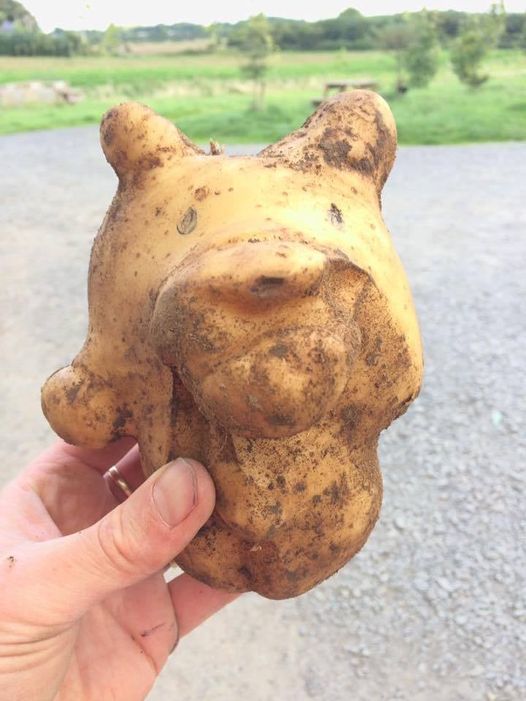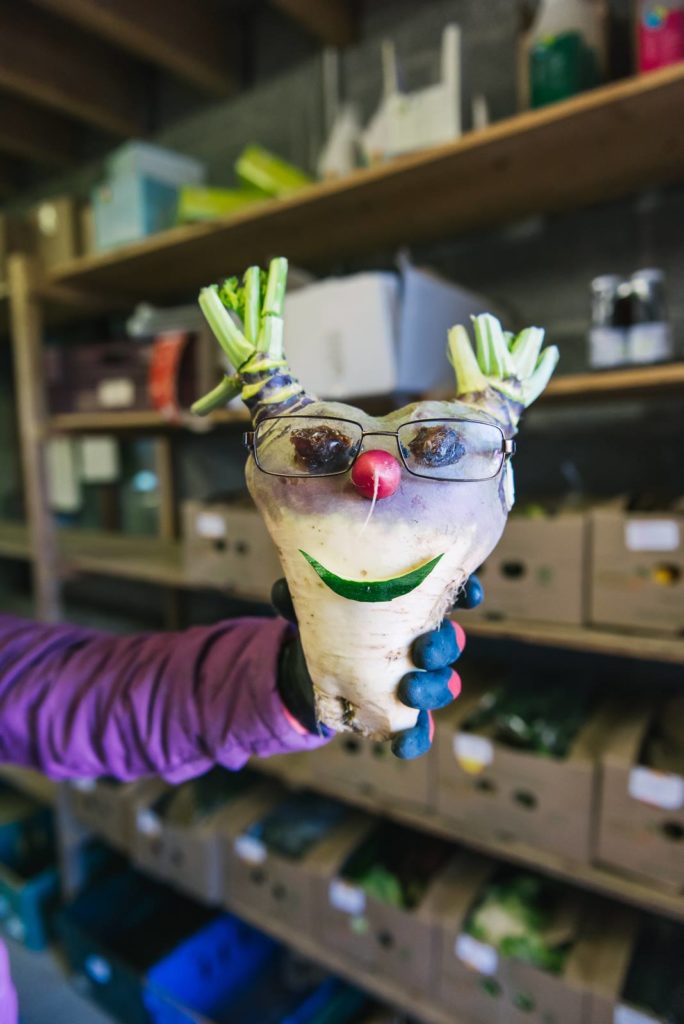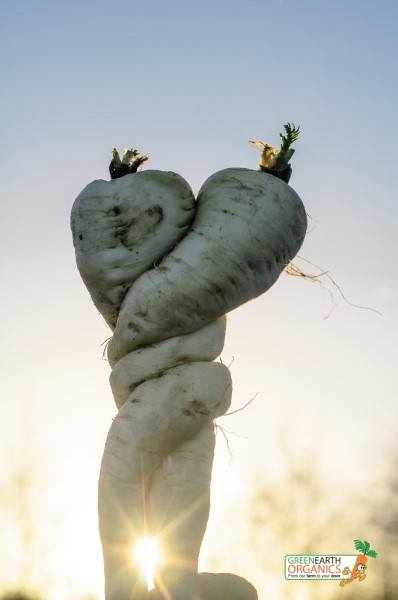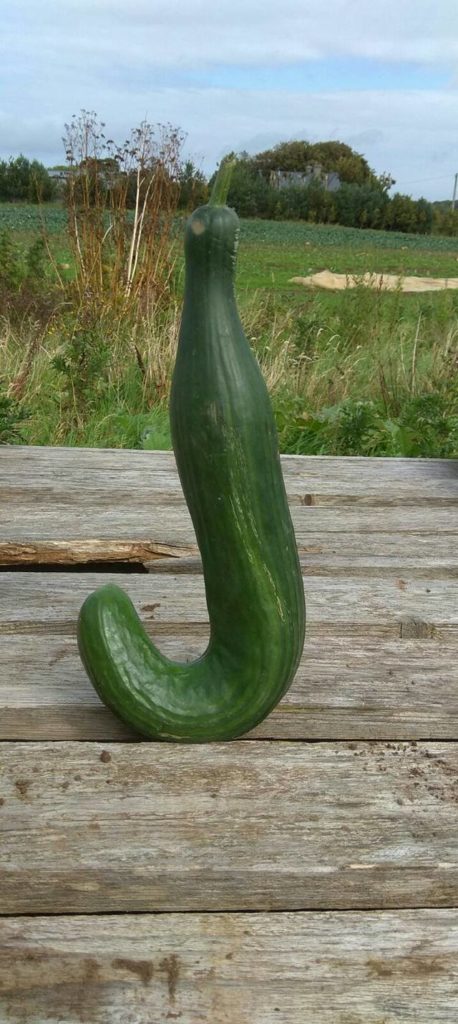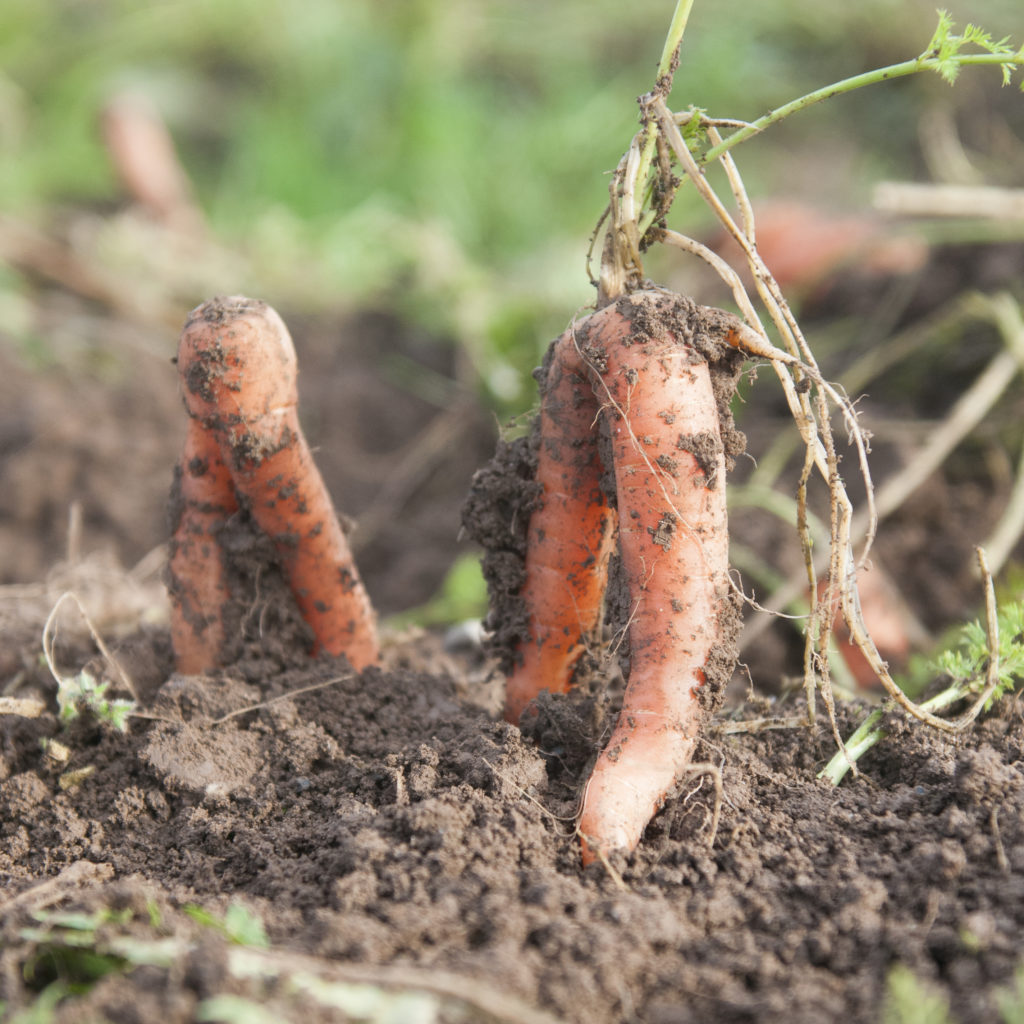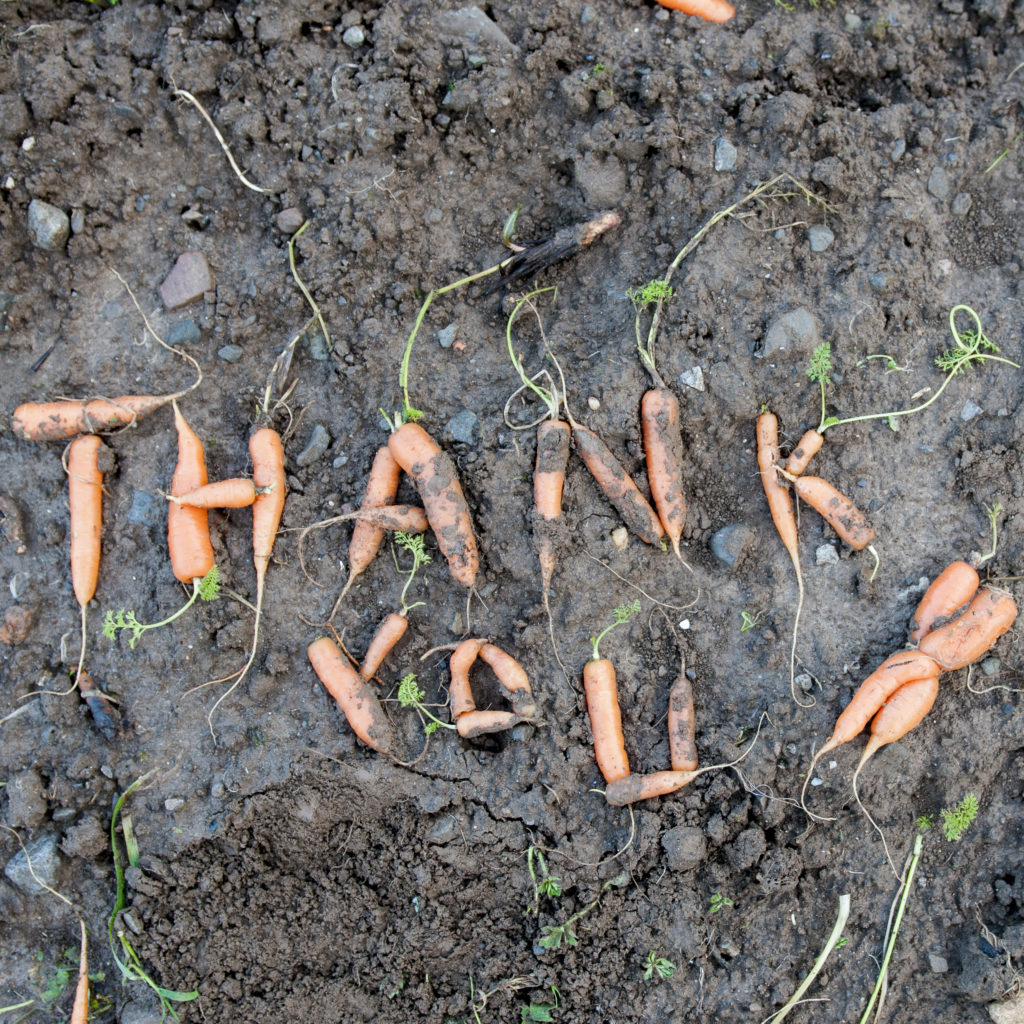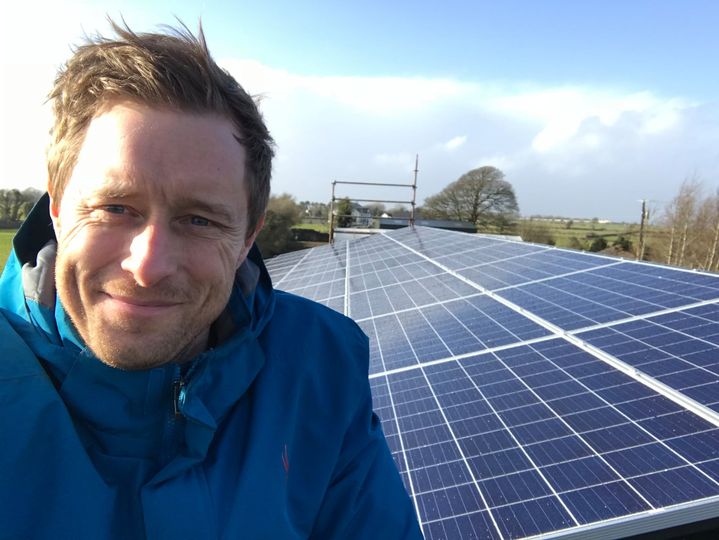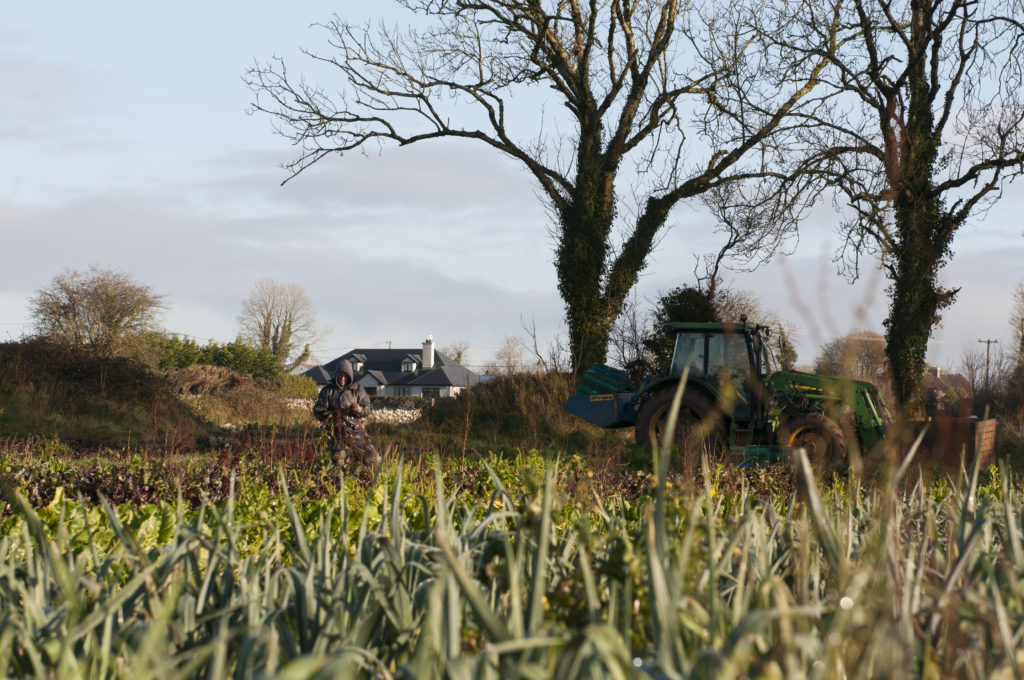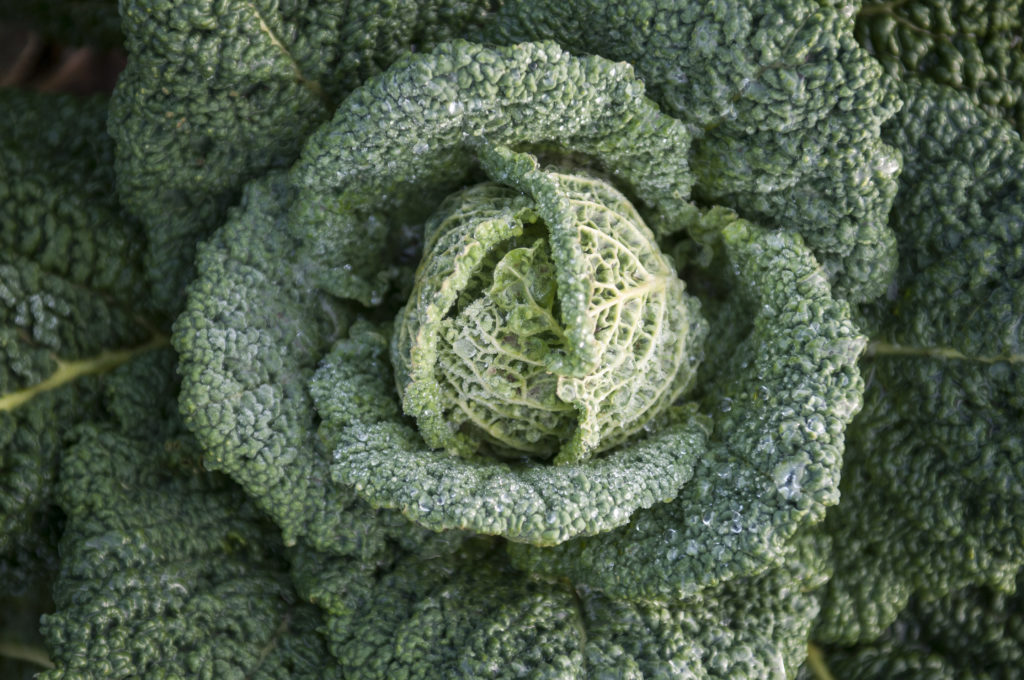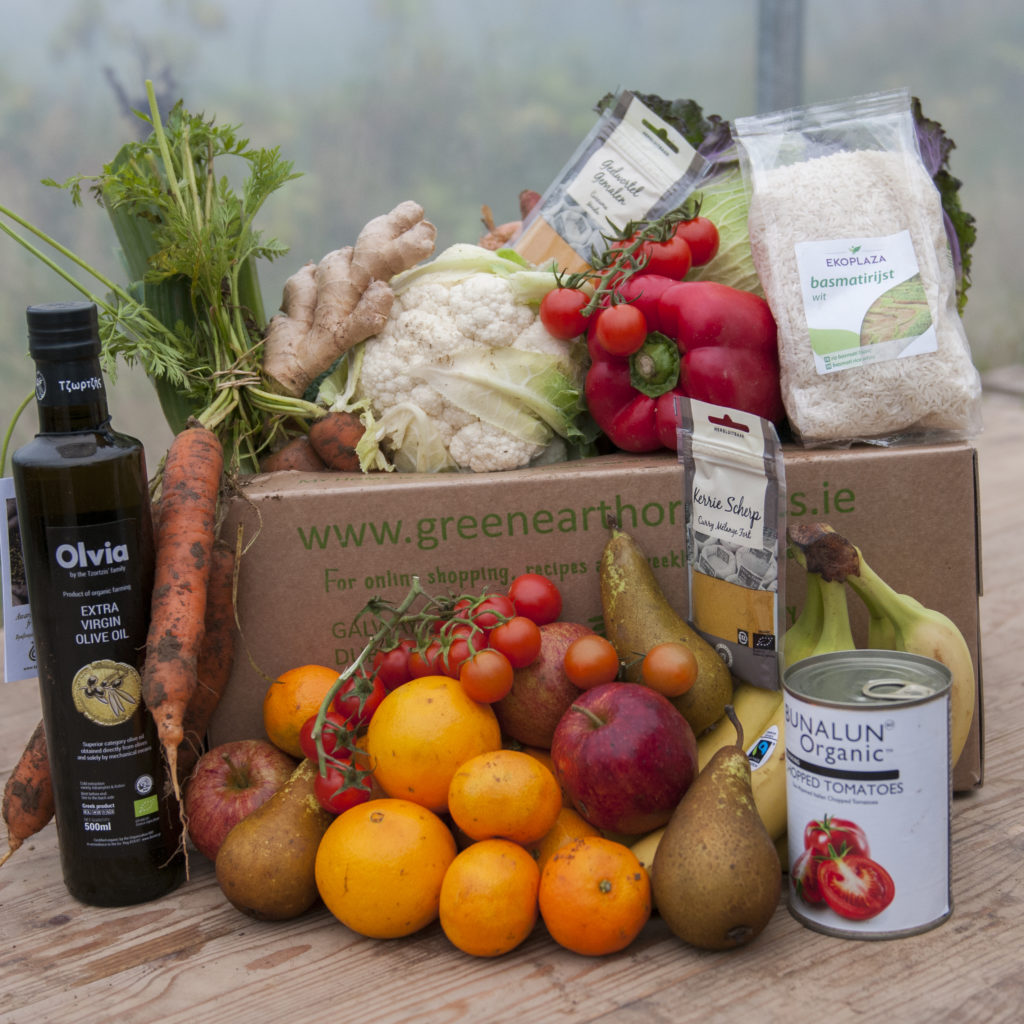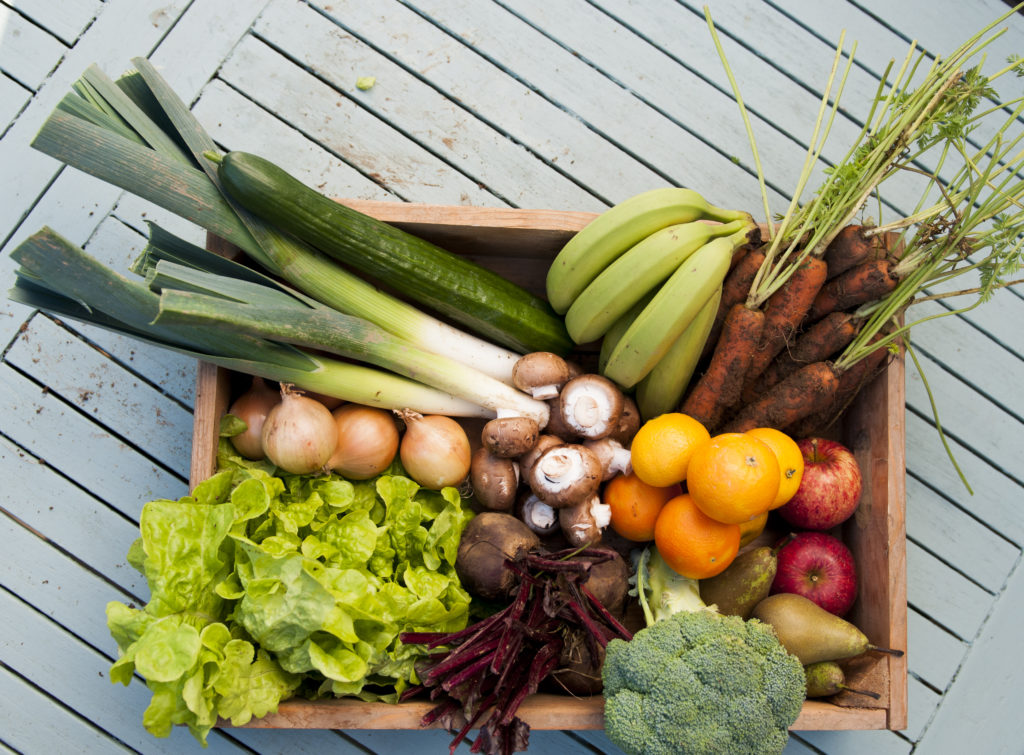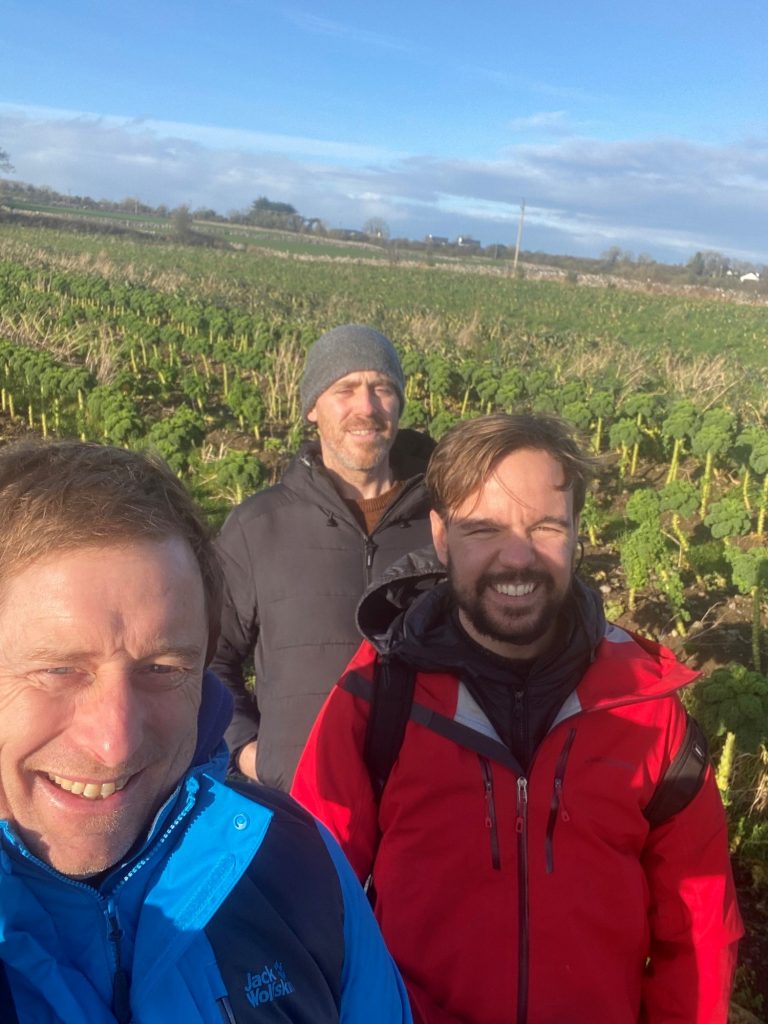
I was delighted to welcome Sean Owens and Callum Patrick Swift to our farm yesterday, two amazing and inspiring individuals, who had driven from Dublin to have a podcast chat about the planet, food and all sorts of other things. I believe our little interview will be on their podcast “climate conversations” soon, give them a listen, I will keep you posted when it is available.
They are both environmentalists, but with a twist.
They are doctors and both are members of “IRISH Doctors for the Environment” and “Plant Based Doctors”. Their focus is on caring for patients and people but weaving in care of the environment into their practice also. This is forward thinking, the kind of thinking our planet desperately needs, and gives me hope for the future.
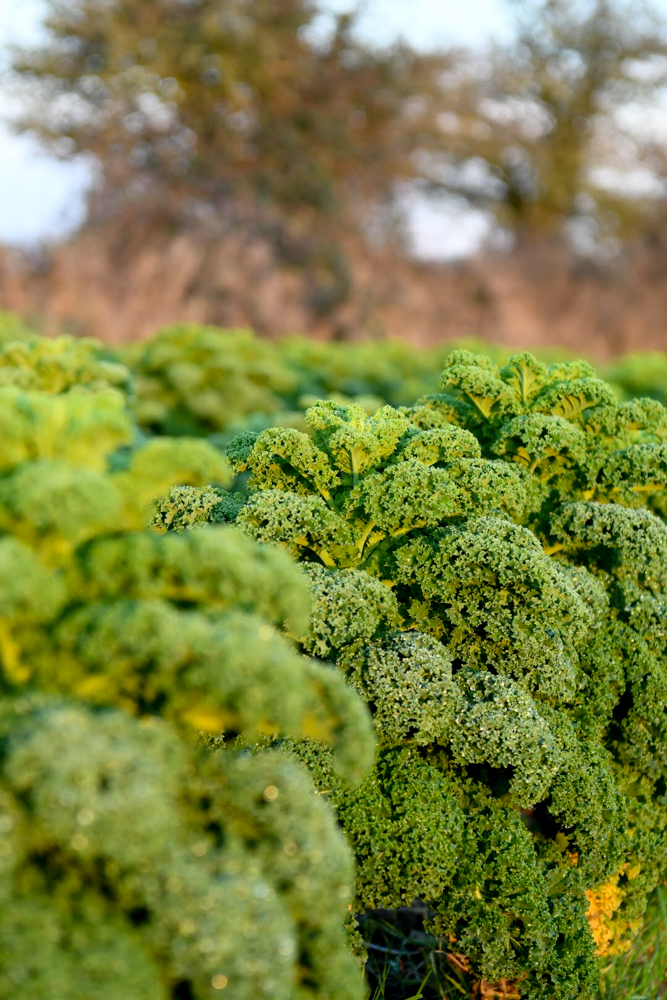
I was, I have to say awe struck as Callum asked if he could use our electric charge point for his electric van which was identical to our electric van that we use to delivery some of our veggies in, how cool was that!
Both are advocates for eating more plant-based foods, the old idiom I used the other day is really true I guess: “no doctor will ever tell you to eat less vegetables”, and as Callum pointed out the 5 a day advice has pretty much been relegated to the back seat now; the current thinking is: eat as much vegetables as you possibly can.
We had an interesting and fun chat; it is I guess easy to speak to the converted, but it was also liberating to be able to talk freely about things that are clearly really important to the two lads and to all of us here on the farm too.
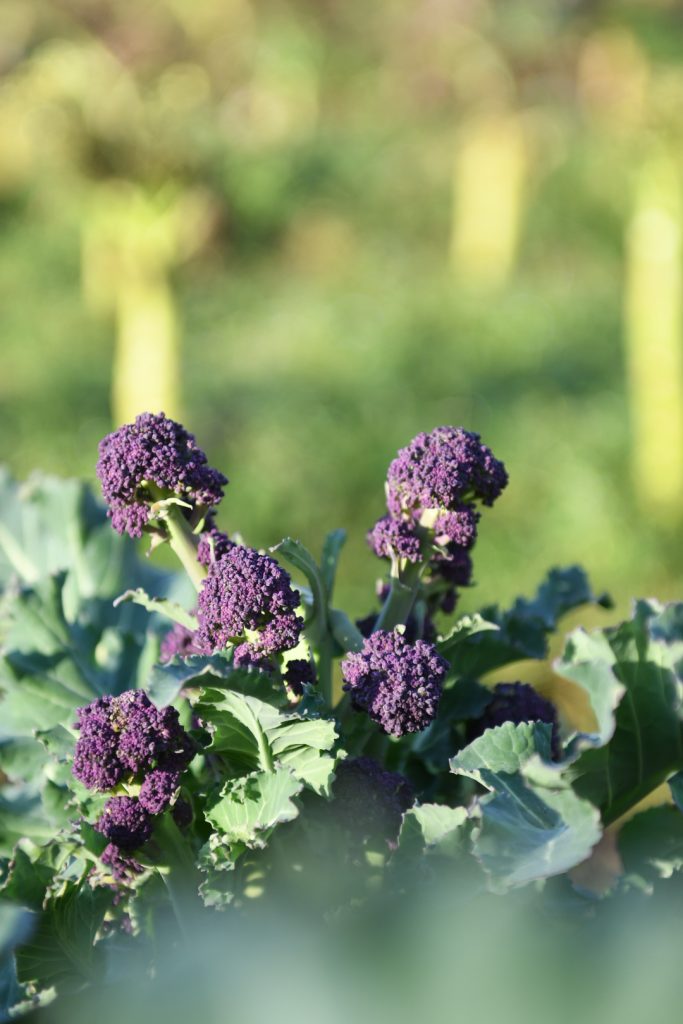
Sean spoke about eating the rainbow and how incorporating an array of different coloured vegetables into our daily eating regime is so good for our health. I think we all agreed that the best way to improve our health is to take small changes and make them a habit.
We had a wander around the farm, sampled a sea of green kale, and of course went to scratch George and Florence’s belly’s. Funny how our two rescue pigs never object to having their backs scratched.
I took away from our conversation that our mission to grow the most amazing local organic plants here in Galway and deliver them (along with all the other very best healthy food around) to homes all over the country is indeed the right thing to be doing.
So, lads thanks for a decent shot in the arm of much appreciated encouragement.
I think neither of the two fellas would have a problem with the saying. “An apple a day keeps the doctor away”. In fact, as they said themselves, current thinking is moving towards preventing people going to hospitals and for that to happen, we all need to focus more on what we eat and on our health way before there is a problem.
Thanks
Kenneth
